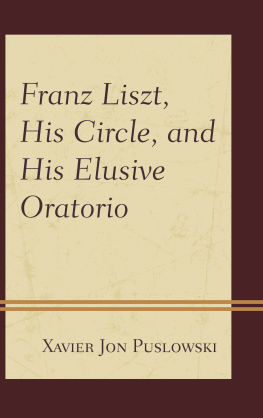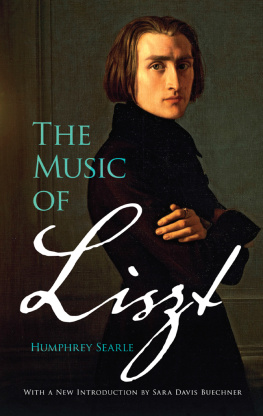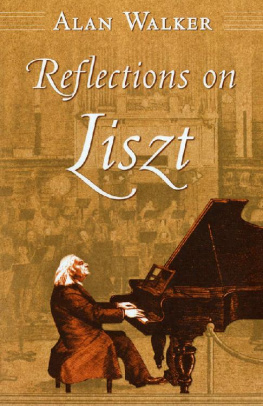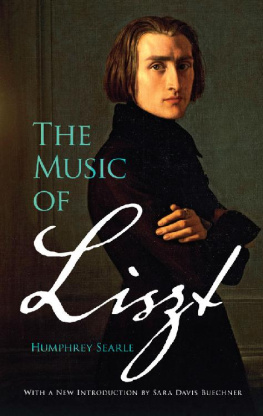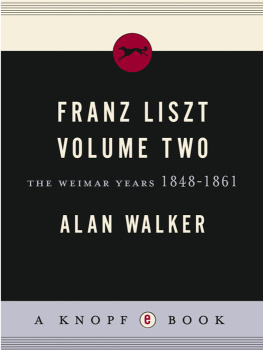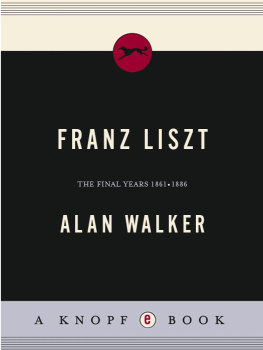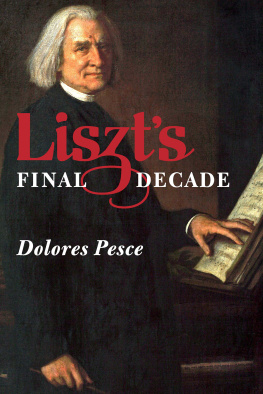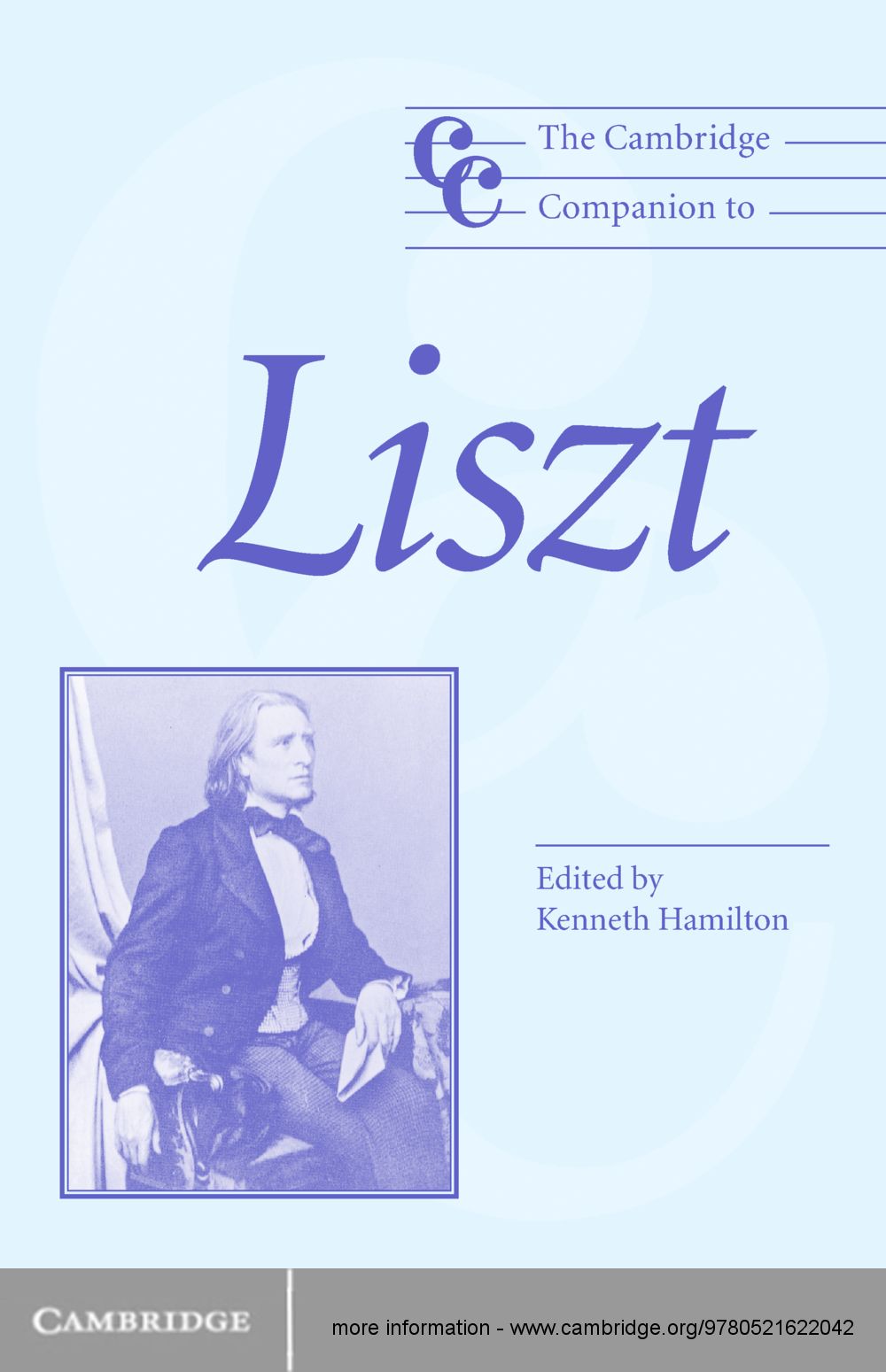James M. Baker is Professor of Music at Brown University. His current research interests include analysis and performance, chromaticism in tonal music, and tonal implication in twentieth-century music.
Anna Celenza an Associate Professor of Musicology at Michigan State University, published her first book, The Early Works of Niels W. Gade: In Search of the Poetic , in 2001. Since then she has published several articles on Liszt, the most recent appearing in 19th-Century Music , and completed the manuscript for a second book entitled Hans Christian Andersen and Music: The Nightingale Revealed .
James Deaville is Associate Professor in the School of the Arts at McMaster University, Canada. He has published articles about Liszt in The Liszt Companion (Greenwood Press) and the Journal of Musicological Research, Canadian University Music Review and Notes , entries about Liszt's New-German colleagues in The New Grove Dictionary of Music and Musicians , revised edition and Die Musik in Geschichte und Gegenwart , revised edition, and has co-edited (with Michael Saffle) Analecta Lisztiana II: New Light on Liszt and His Music .
Katharine Ellis is Reader in Music at Royal Holloway, University of London. She has published widely on aspects of musical culture in nineteenth-century France, including its music criticism, its performance traditions and questions of repertory and canon. She is currently finishing a monograph on the early music revival in nineteenth-century France. Recent and forthcoming articles focus on the Palestrina revival, issues in music education, and Berlioz's critical rhetorics. Katharine Ellis is a former editor of Music & Letters and now edits the Journal of the Royal Musical Association .
Kenneth Hamilton is a concert pianist and Senior Lecturer in Music at Birmingham University. His previous publications include Liszt: Sonata in B Minor (Cambridge University Press), and he has particular research and performance interests in nineteenth-century piano music and performance practice.
Monika Hennemann has been a member of the Musicology Faculty at Florida State University, the German Faculty at the University of Rhode Island, and most recently a Visiting Assistant Professor of Musicology at the College Conservatory of Music, University of Cincinnati. She has written extensively on Mendelssohn and also published articles on Webern and on nineteenth-century reception history.
Dolores Pesce is Professor of Music at Washington University in St Louis. Her writings on Liszt have appeared in 19th-Century Music and in Nineteenth-Century Piano Music, ed. R. Larry Todd (Schirmer, 1990).
Alexander Rehding is Assistant Professor of Music at Harvard University. He is the author of Hugo Riemann and the Birth of Modern Musical Thought (2003) and co-editor of Music Theory and Natural Order from the Renaissance to the Early Twentieth Century (2001). He is currently working on a study of monumentality in nineteenth-century music.
Reeves Shulstad is the Director of the School of Music and Assistant Professor at Salem College in Winston-Salem, NC. Her doctoral dissertation, The Symbol of Genius: Franz Liszt's Symphonic Poems and Symphonies', an interdisciplinary study of a selection of Liszt's orchestral works within the context of the nineteenth-century definition of genius, will be published by Scarecrow Press, and she has presented numerous papers on topics concerning the relationship between music, philosophy and literature.


